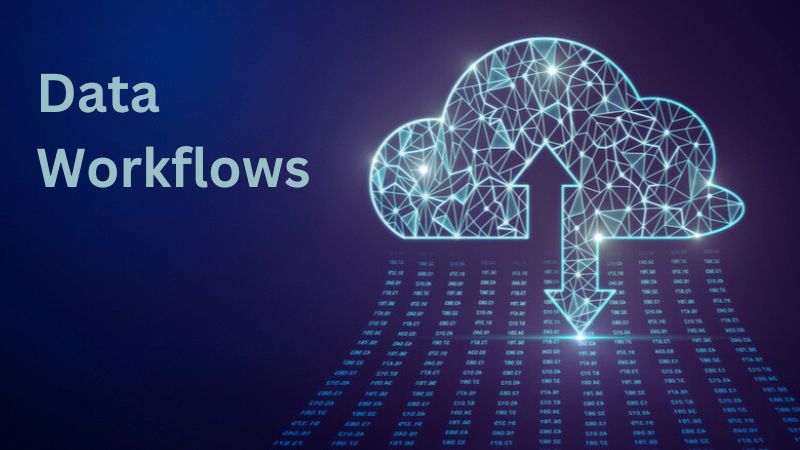For modern businesses, data management is indispensable. They can store and organize vast quantities of information before analyzing it to uncover valuable insights. However, traditional techniques for data management often have difficulty keeping up with increasingly complex and large-scale quantities of data. Because companies are generating huge volumes of data, managing and making sense of it is a growing headache. In this regard, automated solutions like Cloudera Data Engineering Solutions are of great importance. They greatly improve data administration procedures and processes.
Data Engineering: Challenges of Traditional Data Management
Conventional approaches to data management frequently involve labor-intensive processes, human involvement, and susceptibility to errors. Data engineers dedicate a substantial portion of their time to developing intricate code to extract, transform, and integrate data into diverse systems. Human error is possible due to the meticulous attention to detail required for this procedure. Furthermore, with the exponential growth of data volumes, the scalability of conventional data management systems emerges as a significant concern. Organizations face challenges in meeting the demands of contemporary data management due to inefficiencies and over-stability caused by the absence of automation and scalability.
Will Data Engineering Become Automated?
The emergence of automated solutions and technological progress augur a bright future for data engineering. Automation possesses the capacity to fundamentally transform the workflow of data engineers by diminishing the need for manual labor and augmenting overall productivity. Data engineers can allocate their efforts towards more intricate and strategic endeavors, such as data modeling and analysis, through the automation of tedious, repetitive duties.
Automation is the key to improving data management. With this technology in place, organizations can improve the efficiency and reduce the need for labor. There is far less chance they will err as a result. Machine learning algorithms and artificial intelligence-based solutions automate the data ingestion, transformation, and loading processes. By automating these recurring chores, organizations can achieve superior decision-making through more fast and accurate data processing.
Overview of Cloudera Data Engineering

Cloudera Data Engineering is a comprehensive data administration platform supporting sophisticated automation features. For data engineers, it provides a single environment in which to develop, execute, and monitor large-scale pipelines. Instantly integrating with any data source or system, the platform can easily ingest and transform data. Furthermore, Cloudera Data offers a rich portfolio of pre-integrated connectors that cover the integration needs of an organization’s existing data infrastructure. The Cloudera Data application is a comprehensive automation suite with an intuitive user interface, that streamlines the complex processes of data management.
What is the Role of Data Engineer in Cloudera?
In Cloudera, data engineers are located strategically between the designers of data pipelines and their implementation. Through its entirety, they are responsible for establishing and managing data workflows that meaningfully ensure the quality of their information. The automation features of the platform allow data engineers to optimize their work and thus reduce labor, while also increasing efficiency. To do this, the company collaborates with data scientists and other stakeholders to learn what they need from their data to create one road of many paths leading them all toward a happy ending.
What is Typically Used to Automate the Process?

The execution of duties is automated through the utilization of a multitude of technologies and methodologies. Several frequently employed tools and frameworks comprise:
- Apache Airflow – Apache Airflow is an open-source platform for creating, planning, and monitoring data operations programmatically. It is for data engineers to build and run pipelines of data.
- Machine learning algorithms – Machine learning algorithms can automate anomaly detection, data purification, and quality assessment. These algorithms can make forecasts or even make decisions.
- Data integration tools – For instance, both Apache Kafka and Apache NiFi can be used to automate the process of ingesting data from multiple sources. These instruments provide scalable, effective abilities for ingesting data.
Key Features and Benefits of Data Engineering

Its comprehensive collection of features and benefits makes the industry standard in automated data management. A few of the most important features are:
- Automated data ingestion – It automates data ingestion from wide sources and ensures the effective collection and storage of data.
- Data transformation – Data engineers can use the platform’s powerful tool for transforming data to clean, normalize, and add value to information prior to its import into target systems.
- Scalability – It is designed to handle data processing at a colossal scale. It employs the distributed computation technologies necessary to ensure scalability and high-performance.
- Built-in connectors – The platform offers a broad range of integrated connectors, which aid easy integration with common data sources and systems.
- Data governance and security – Robust data access control, encryption and compliance features are top priorities.
Comparison with Other Data Management Platforms
Cloudera Data Engineering is distinguished from other platforms for data administration by its sophisticated automation functionalities. Although alternative platforms do exist in the market, they frequently fall short in terms of the degree of automation and scalability that Cloudera offers. Conventional data management platforms necessitate substantial manual labor and exhibit a deficiency in the capacity to efficiently process data on a large scale. In contrast, Cloudera Data Engineering provides a cohesive and automated setting that streamlines responsibilities and empowers organizations to effortlessly expand their data processing capacities.
What is the Future of Data Engineering?
Data Engineering appears to have a bright future, with automation playing a pivotal role in the discipline’s transformation. We can anticipate additional developments in automated data management solutions. The ongoing reduction in manual labor by automation will allow data engineers to allocate their efforts toward more strategic endeavors. The sophistication of machine learning algorithms will increase, enabling more accurate evaluation of data quality and automated decision-making.
By enhancing the scalability and efficacy, organizations can effectively manage the continuously growing volumes of data that are generated. Cloudera Data Engineering provides an end-to-end infrastructure that enables data engineers to conceive, build, and manage complete pipelines. With its strong capabilities in automation, scalability, and so on, Cloudera Data Engineering leads us to a data-driven future.
Conclusion
With the emergence of automated solutions, data management is ultimately enduring a revolution. Conventional data administration methods are facing challenges in keeping pace with the exponential expansion and intricacy of data. Advanced automation allows businesses to enhance their processes, reduce reliance on manpower, and get the most out of corporate information.
Read More:
- How Power BI works for Cloud Computing and On-Premises?
Power BI is a suite of Smartphone platforms developed by Microsoft. This article explains about Power BI report server for on-premises and cloud computing.



